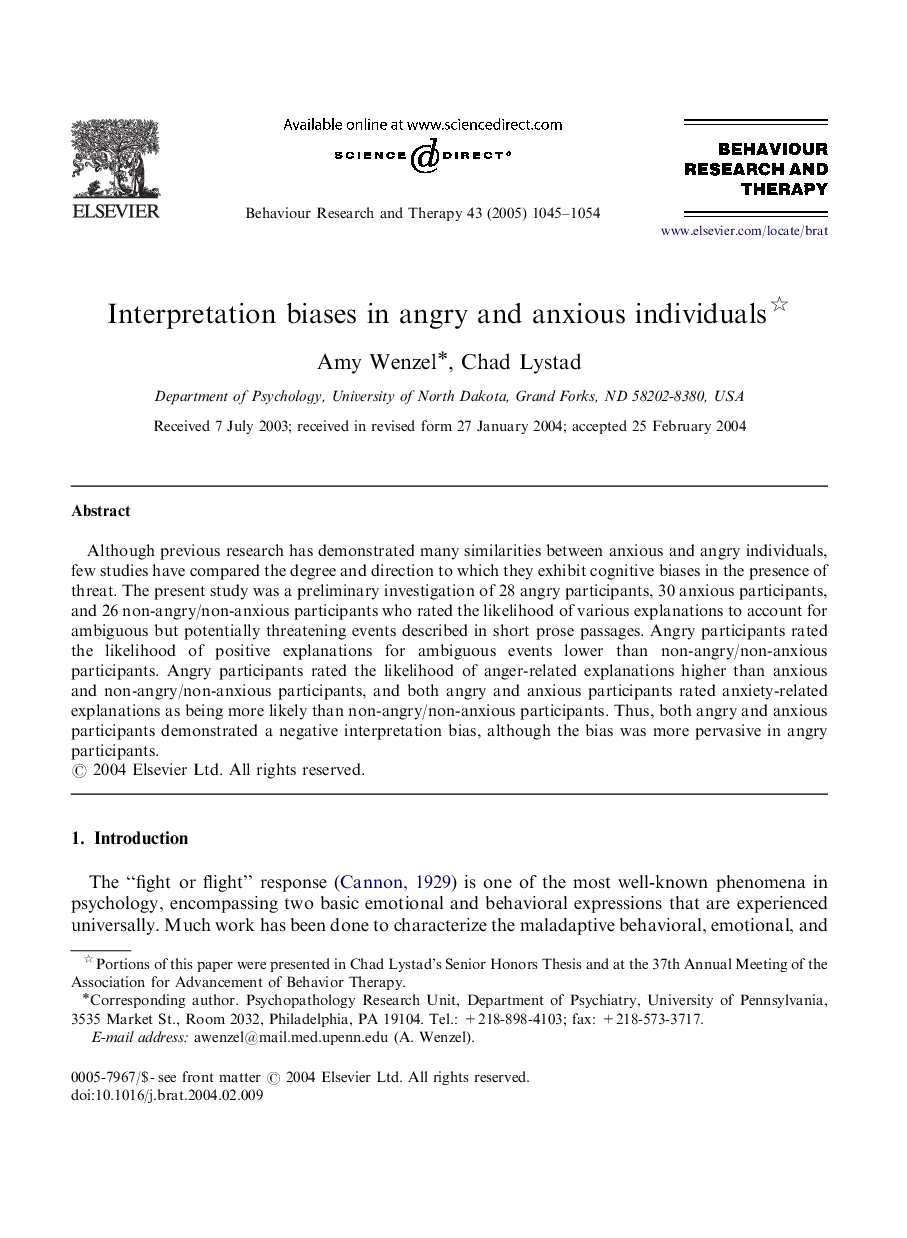| Article ID | Journal | Published Year | Pages | File Type |
|---|---|---|---|---|
| 10445176 | Behaviour Research and Therapy | 2005 | 10 Pages |
Abstract
Although previous research has demonstrated many similarities between anxious and angry individuals, few studies have compared the degree and direction to which they exhibit cognitive biases in the presence of threat. The present study was a preliminary investigation of 28 angry participants, 30 anxious participants, and 26 non-angry/non-anxious participants who rated the likelihood of various explanations to account for ambiguous but potentially threatening events described in short prose passages. Angry participants rated the likelihood of positive explanations for ambiguous events lower than non-angry/non-anxious participants. Angry participants rated the likelihood of anger-related explanations higher than anxious and non-angry/non-anxious participants, and both angry and anxious participants rated anxiety-related explanations as being more likely than non-angry/non-anxious participants. Thus, both angry and anxious participants demonstrated a negative interpretation bias, although the bias was more pervasive in angry participants.
Related Topics
Health Sciences
Medicine and Dentistry
Psychiatry and Mental Health
Authors
Amy Wenzel, Chad Lystad,
